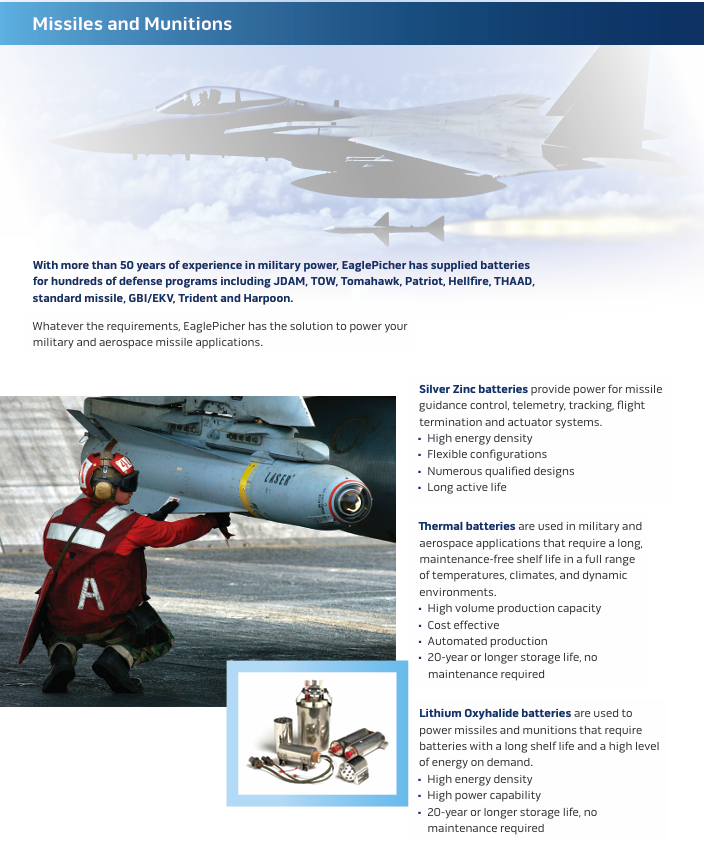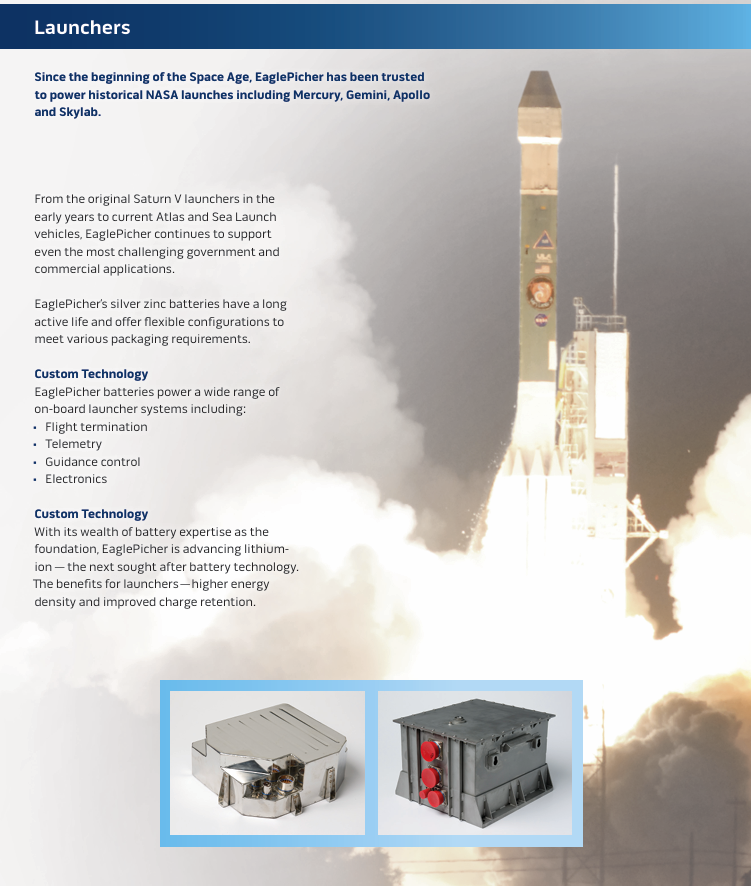If the silver market is manipulated, why? What is so important as to go through all the efforts for such a long time? SilverWars laid out our theory earlier this year that it is directly tied to the military industrial complex's need for silver as a strategic raw resource to be readily available.
Governments could afford any priced silver.
Governments cannot afford to have no silver because that would threaten national security.
We believe the goal of the manipulation is not about suppressing the price, but is apart of an effort of psychological demoralization for those that hold physical silver into abandoning their investment; i.e. the 'Above Ground Supply'.
Earlier this year, the previous Chairman of the Silver Institute, Phillips Baker, made comments questioning "when are these people going to let it go?"
Credit: SOAR Financially
The Military Industrial Complex needs Silver and they are influencing this market to ensure the availability of their silver batteries into 2030.
And we found the proof!
Published in 2013, the Annual Industrial Capabilities Report to Congress provides clear evidence that the Military Industrial Complex is engaged in the silver resource sector to "assess future supply and demand issues to ensure Silver-Zinc (AgZn) battery industrial capabilities are maintained and available post 2017-2030."
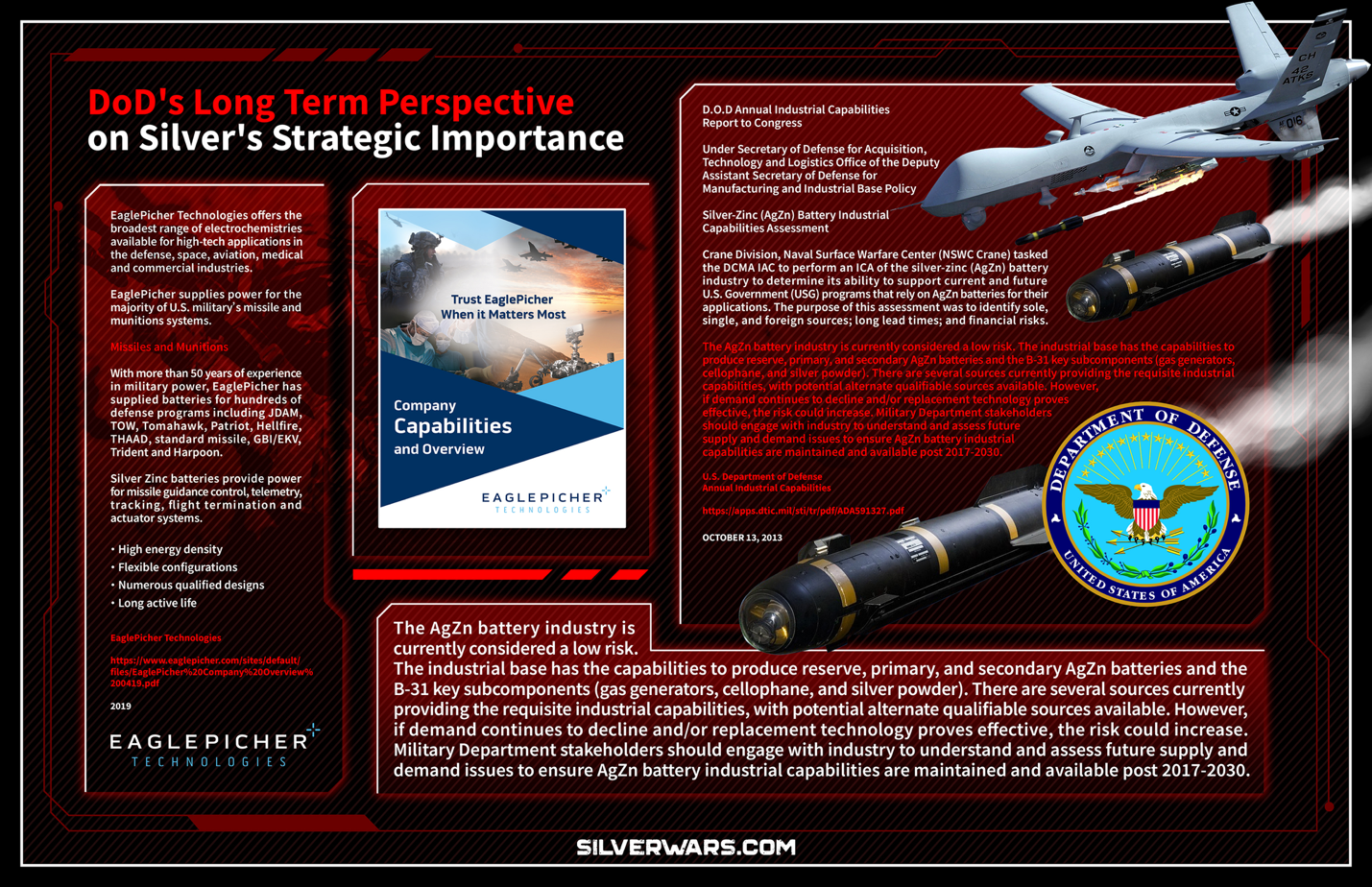 Photo By SilverWars
Photo By SilverWars
SilverWars - Silvers Strategic Importance - EaglePicher_Technologies - English
SilverWars - Silvers Strategic Importance - EaglePicher_Technologies - English.jpg
Annual Industrial Capabilities Report to Congress - Oct 2013
Annual Industrial Capabilities Report to Congress - Oct 2013.pdf
Although silver batteries have existed since the 19th century, silver batteries have kept up with the times and power some of the most sophisticated weapons and military equipment of modern days. The military keeps these designs and components classified because the silver technology provides a battleground advantage and would be dangerous in the wrong hands.
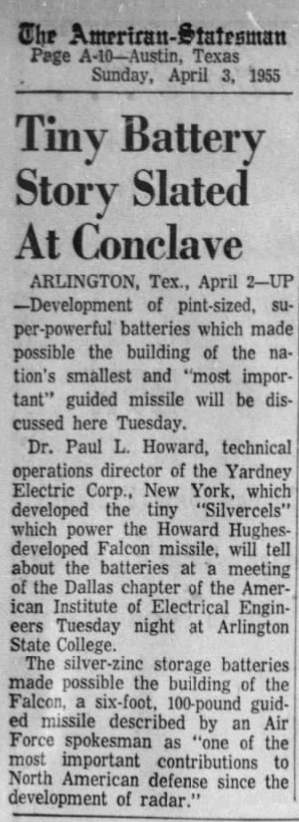
Source: The American-Statesman - Texas - 1955
In 2005, the U.S. Federal authorities arrested an exporter named Christopher Tappin for trying to sell 50 EaglePicher Silver Zinc batteries (AgZn), which powered the MIM-23 Hawk surface-to-air missiles, to Iran.
Tappin would later plead guilty and be given a 33-month prison sentence for arms dealing.
2005-Christopher-Tappin-caught-selling-silver-batteries-to-Iran
2005-Christopher-Tappin-caught-selling-silver-batteries-to-Iran.pdf
But what's the big deal?
Well, the most terrible weapons of mass destruction, like the intercontinental ballistic missiles (nukes) are powered by silver batteries– because if there is ever the example case of when reliability matters above all other factors of design, its with these types of munitions.
In 1981, following the peak silver price, the Reagan administration announced to the market, plans to sell more than one third (50mil+ ounces) of the US critical silver stockpile.
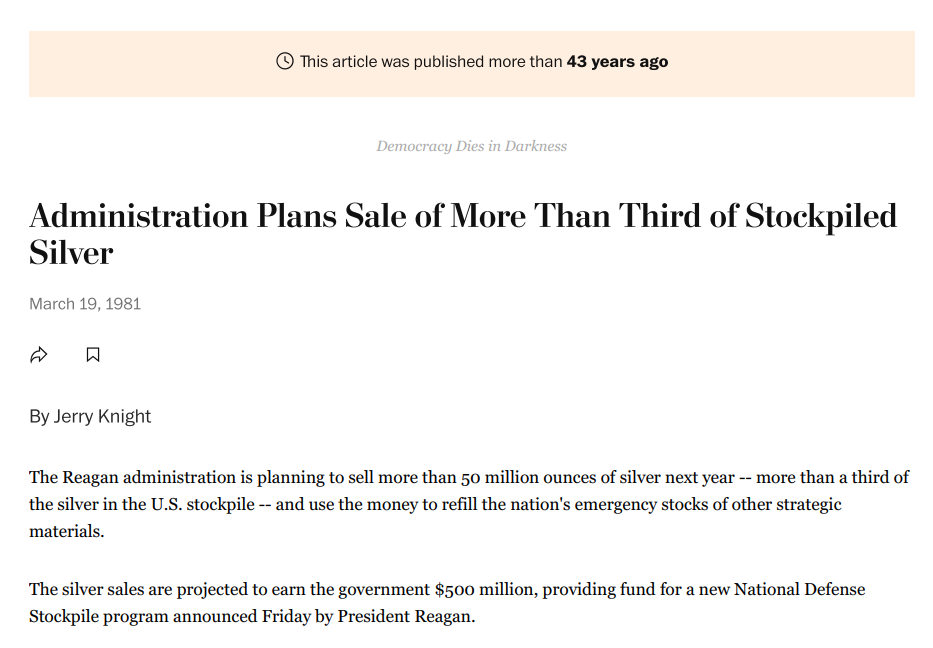
Moreover, the Washington Post in the same articled reported that the MX missile system (ICBM) needed 35 million ounces of silver for its batteries.

If the US needed that much silver for a single weapon production contract, then why sell our stockpile into the market?
At the time, FEMA officials cited a GAO study which concluded "that if a three-year conventional war cut off all other supplies the nation's silver needs could be filled by the United States, Canada, and Mexico."

Since that study over 40 years ago, the United States has fallen from the top to 9th global silver producer.
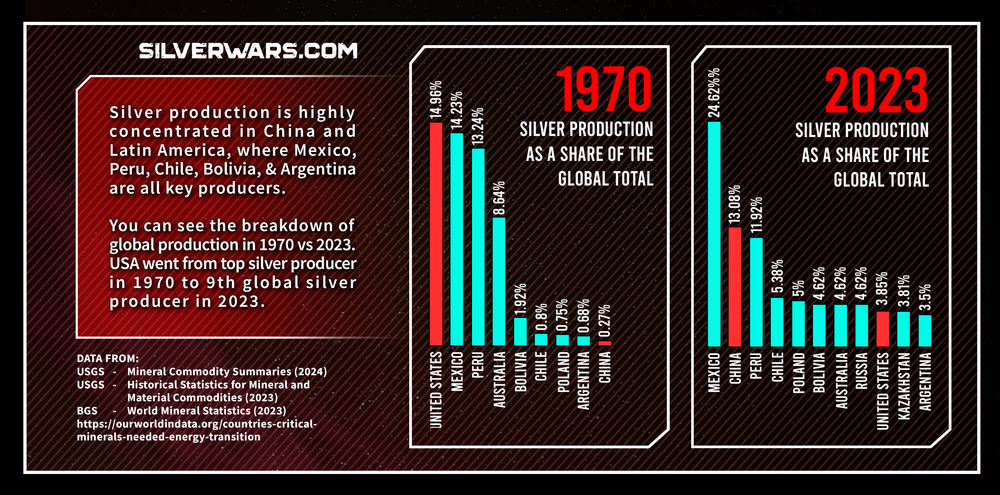
More on that MX missile:

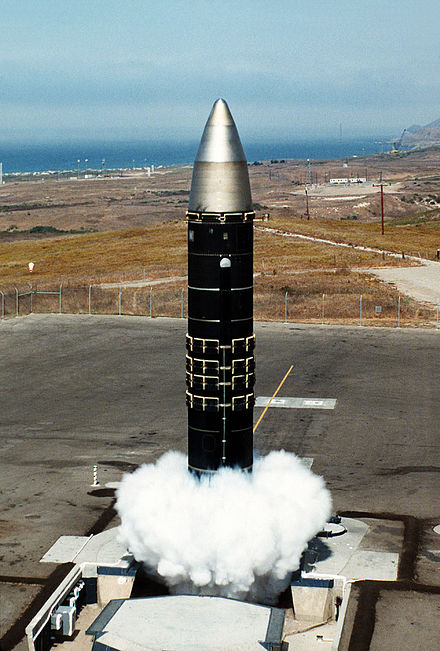
Administration Plans Sale of More Than Third of Stockpiled Silver - The Washington Post
Although the wiki makes mention that only 50 would end up being produced, the amount of silver that went into each was egregious at or about 350,000 troy ounces per intercontinental ballistic missile (ICBM).
Decommissioned now, the LGM-119 Peacekeeper would be replaced with the LGM-30 Minuteman and variants. The LGM-30G is still in service today. According to HigherGov (a website devoted tracking Government Contracts), the Stage One Battery Replacement is for a Remote Activated Silver-Oxide Zinc (AgZn) battery. The latest request for a new silver battery was updated on December 2, 2024.
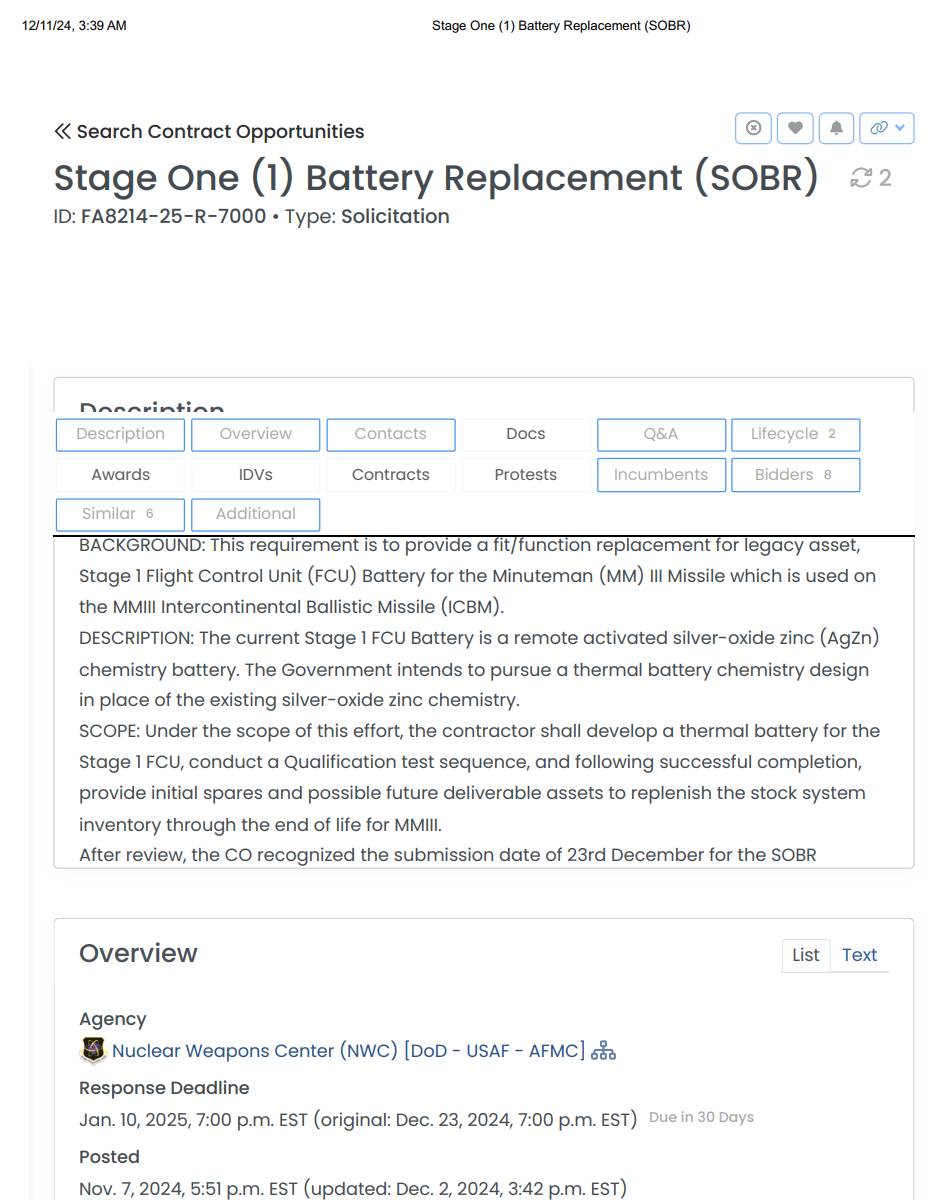 HigherGov
HigherGov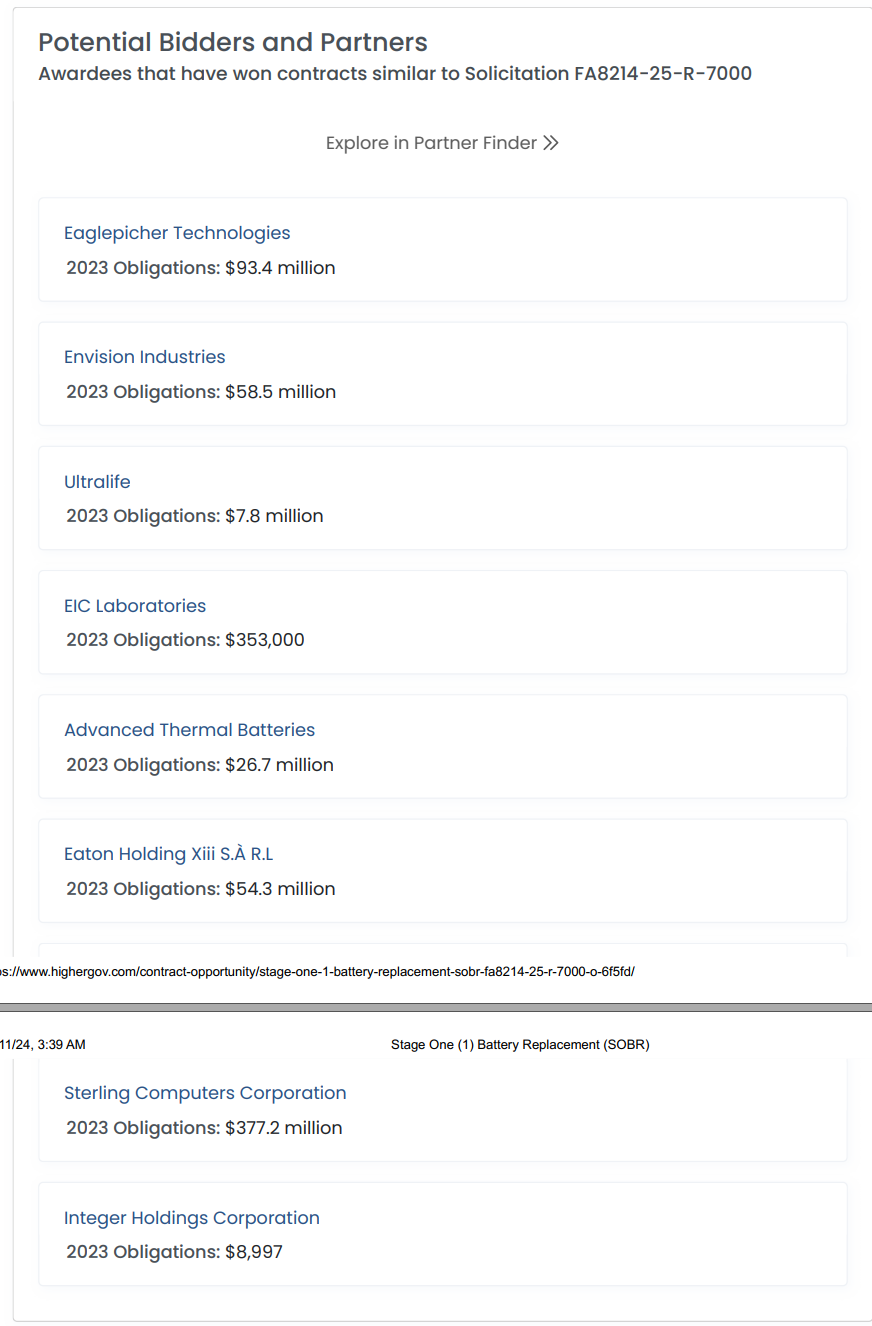 HigherGov
HigherGov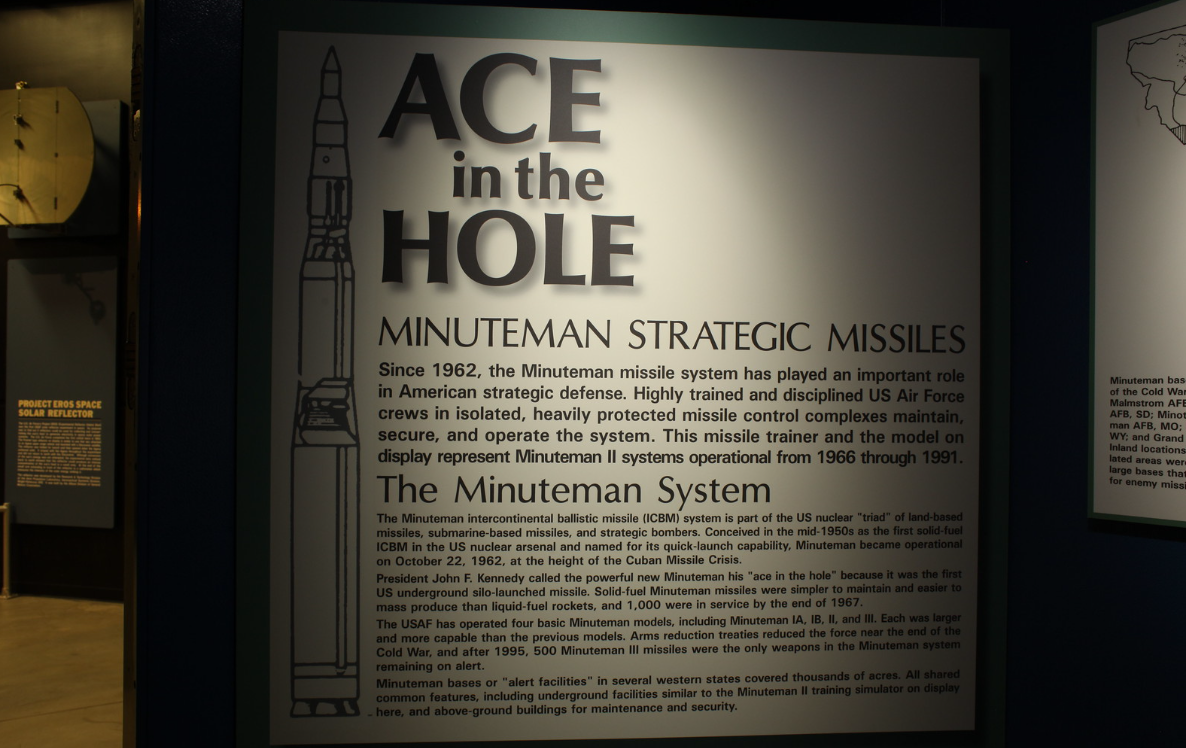
Intercontinental ballistic missile LGM-30A_B Minuteman-1 _ Missilery.info
Intercontinental ballistic missile LGM-30A_B Minuteman-1 _ Missilery.info.pdf
Stage One (1) Battery Replacement (SOBR)
Stage One (1) Battery Replacement (SOBR).pdf
(Story Continues Below)
More on Silver Military and Aerospace Usages:
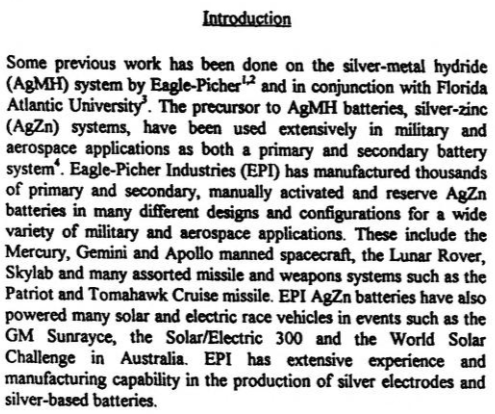 1994 - 36th Power Sources Conference
1994 - 36th Power Sources Conference
(June 1994) - US Army Research Laboratory - 36th Power Sources Conference
(June 1994) - US Army Research Laboratory - 36th Power Sources Conference.pdf
"Eagle-Picher Industries (EPI) has manufactured thousands of primary and secondary, manually activated and reserve AgZn batteries in many different designs and configurations for a wide variety of military and aerospace applications."
"These include the Mercury, Gemini and Apollo manned spacecraft, the Lunar Rover, Skylab and many assorted missile and weapons systems such as the Patriot and Tomahawk Cruise missile."
@EaglePicher deleted their Twitter/X Account in 2024
Archive.org
[From SilverWars Archives]:

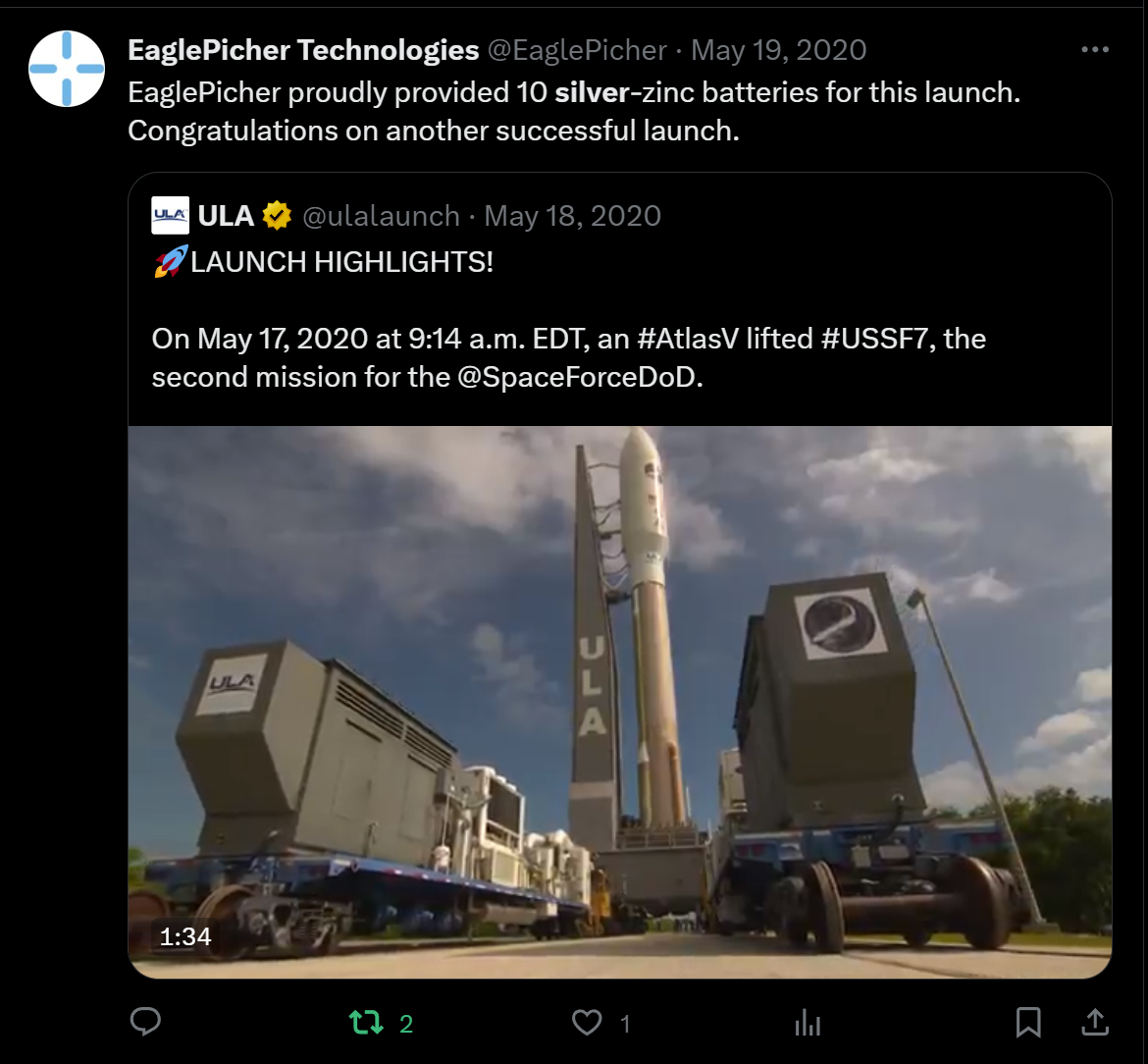 Photo By ULA
Photo By ULA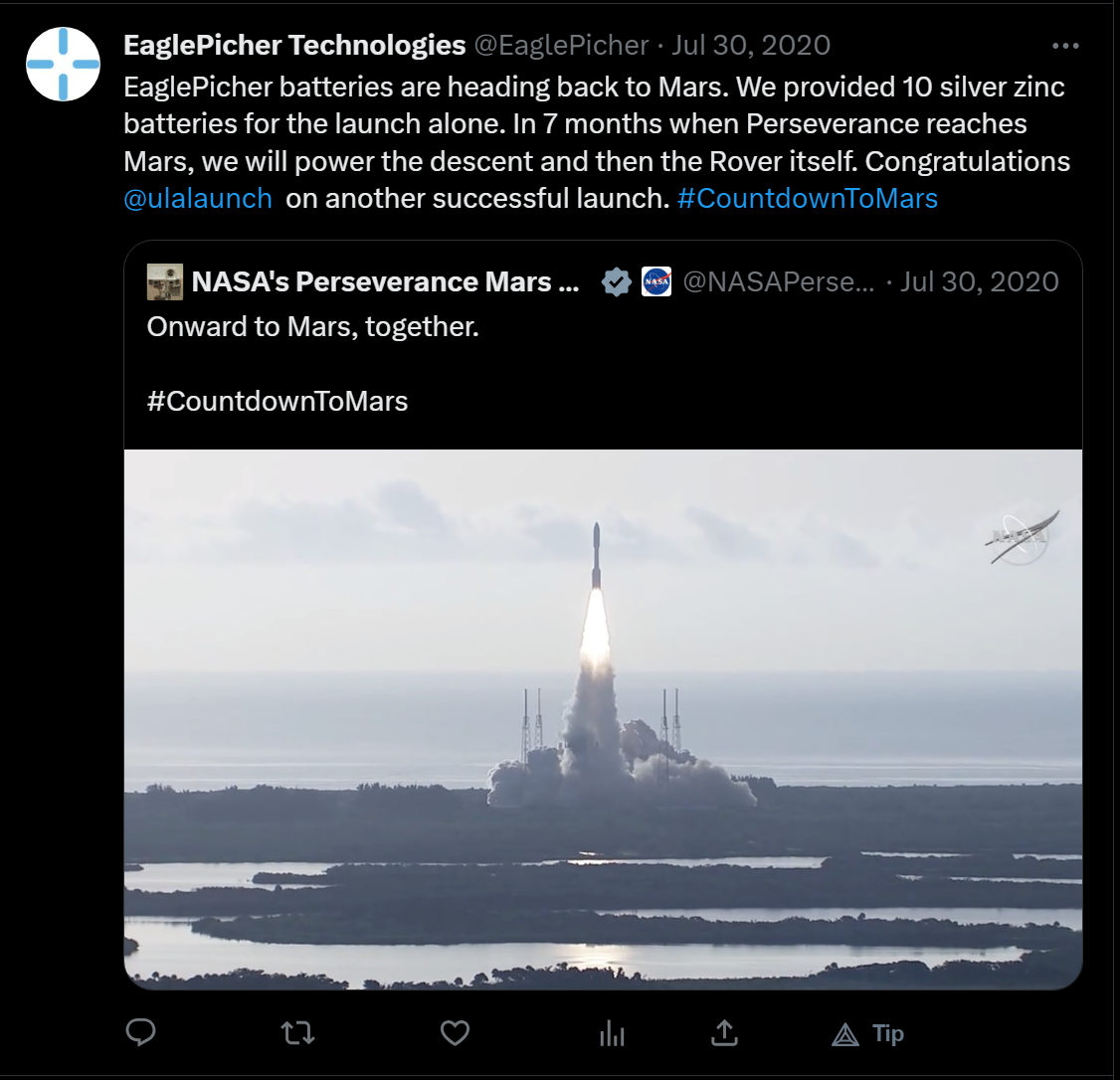 Photo By NASA
Photo By NASA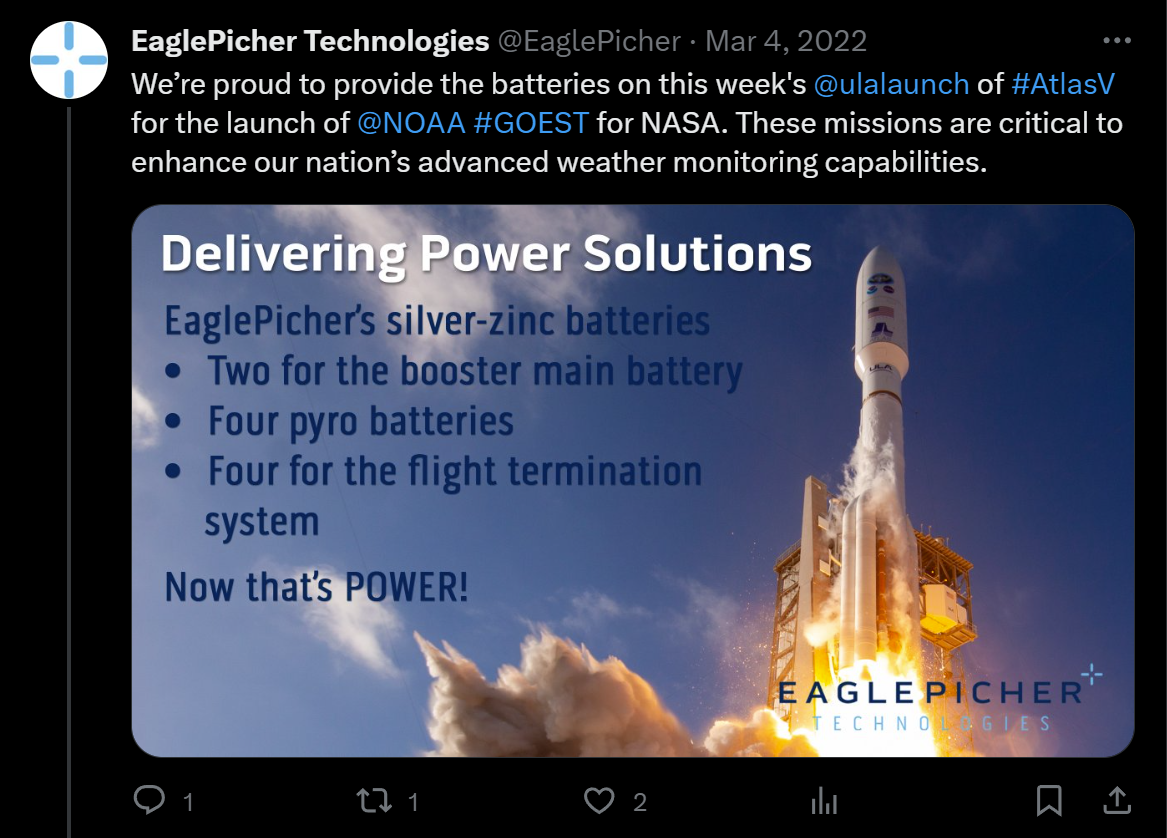 Photo By EaglePicher
Photo By EaglePicher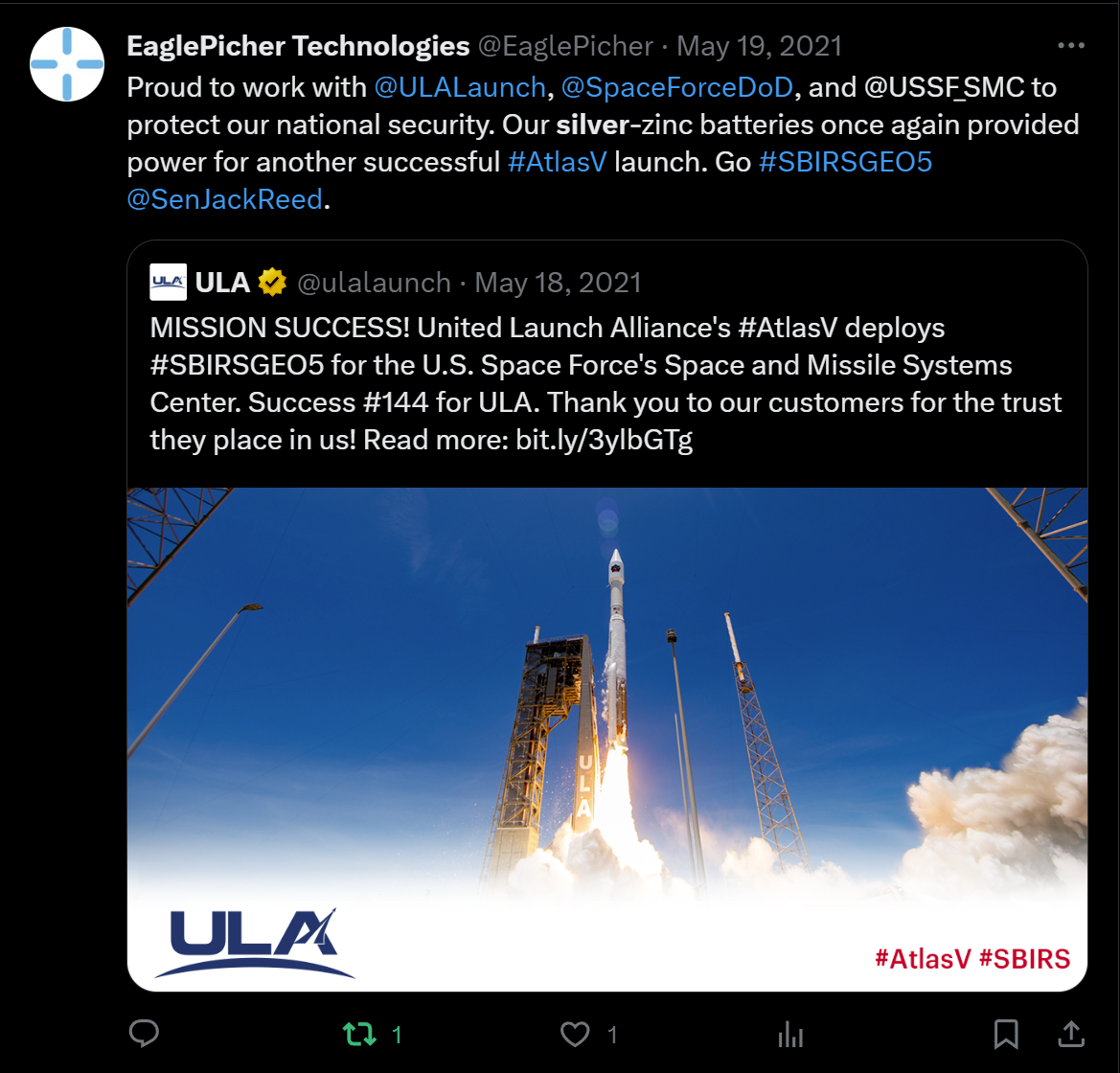 Photo By ULA
Photo By ULA
 Photo By EaglePicher
Photo By EaglePicher
"EPI AgZn batteries have also powered many solar and electric race vehicles in events such as the GM Sunrayce, the Solar/Electric 300 and the World Solar Challenge in Australia."
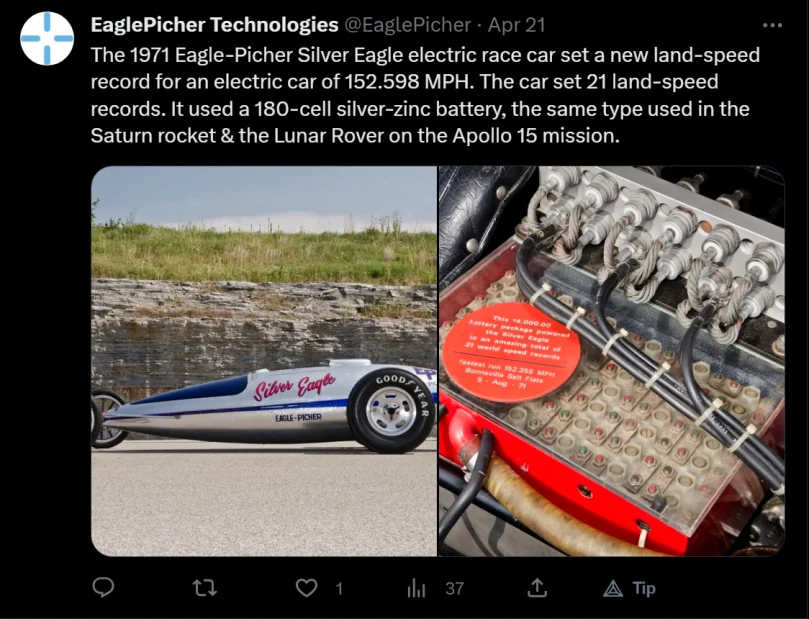 Tweet from EaglePicher
Tweet from EaglePicher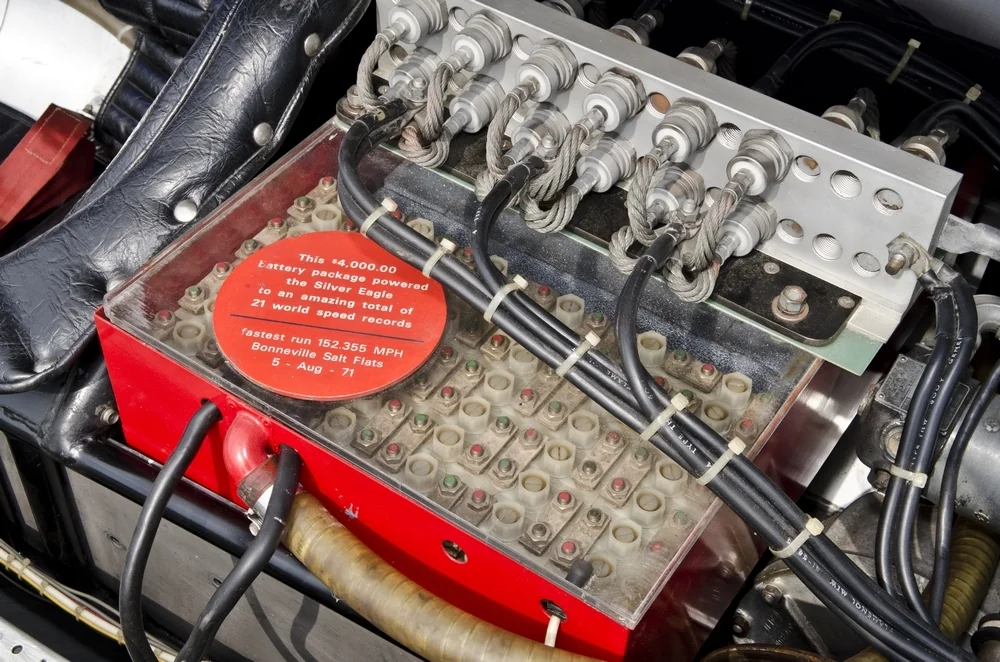 Photo By EaglePicher
Photo By EaglePicher
With an average silver price in 1971 of $1.55, at a cost of $4,000, the battery above would roughly of had 2500+ troy ounces of silver. This battery would cost about $71,000 more today at $30 troy ounce silver.
Eagle Picher - Company Capabilities Overview

